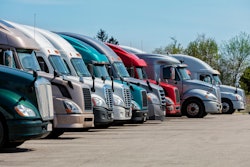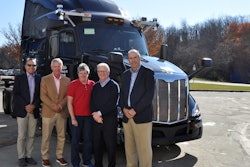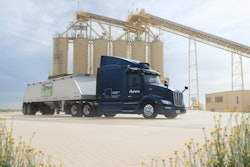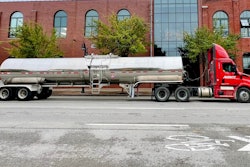The trucking industry is a vital component of the national economy, and measures to encourage growth and job creation are a legitimate concern for lawmakers. However, the legal landscape surrounding trucking accidents has undergone significant change. Several states have enacted laws that can pose significant challenges for individuals seeking to hold trucking companies liable for accidents. These legislative shifts have been implemented even as large truck fatalities continue to rise. The National Safety Council reports a 49% increase in deaths related to large truck accidents over the past decade.
Intense lobbying by the trucking industry has driven many of these legal changes. Proponents of the new laws claim that the rise of huge verdicts in truck accident cases threatens to drive carriers out of business, applauding limits placed on compensation awarded to crash victims.
Arguments are being made from both sides of the table, and it is clear that these changes have implications for both accident victims and the trucking industry as a whole. To understand the debate, multiple factors must be considered.
The federal preemption dilemma
One key factor contributing to the challenges in holding trucking companies accountable is the concept of federal preemption. The trucking industry is heavily regulated at the federal level, with comprehensive rules and standards designed to ensure safety on the roads for both drivers and the public. Recent state laws have sought to align state regulations with federal standards, arguing that consistency is essential for the smooth operation of interstate commerce.
Those in favor of federal preemption assert that state-specific regulations should not interfere with or impose additional requirements beyond the federal regulations. By prioritizing federal regulations, states can provide a uniform regulatory framework that facilitates compliance and streamlines operations for trucking companies operating across state lines.
Conversely, critics argue that federal preemption can limit states' ability to hold trucking companies accountable for safety violations and accidents, potentially compromising the rights of accident victims. States who embrace the notion of federal preemption can result in trucking companies being shielded from state-level liability claims. Other detractors claim that this one-size-fits-all approach fails to account for the diverse geographic and environmental conditions across states, potentially leaving gaps in safety regulations that will negatively impact the public.
Tort reform and caps on damages
Tort reform has had a significant impact on the trucking industry, shaping the legal backdrop in ways that influence liability, litigation, and compensation. From an objective standpoint, tort reform is a response to the perceived need for a balance between the interests of accident victims and the financial stability of businesses. Supporters of tort reform insist that limiting damages prevents excessive litigation that could jeopardize the viability of trucking companies, thereby contributing to a more sustainable business environment.
States such as Texas, Georgia, Indiana, Wisconsin, Florida, and Missouri have embraced tort reform as a means of addressing concerns about escalating litigation costs and the potential impact on businesses such as trucking companies. Caps on damages in personal injury lawsuits are a common feature of tort reform, intended to limit the financial exposure of companies while still allowing accident victims to seek compensation.
One recent example is Iowa, where a law was passed that will limit jury awards to $5 million in accident lawsuits against commercial vehicles. Other states are expected to follow suit, but not every state has adopted these reforms. For instance, New York state has no caps on trucking accident damages—welcome news for individuals severely impacted by catastrophic trucking accidents in that part of the country.
Tort reforms in the trucking industry can also have implications for workers’ compensation claims, particularly when it comes to how these reforms may limit liability and affect legal avenues available to injured workers within the industry. The impact can vary depending on the specific reforms implemented in each jurisdiction and the severity of an injury. Spinal cord damage, for example, is treated as a ‘serious injury’ and likely to garner more compensation in most county courts. Injured workers are generally entitled to workers’ compensation benefits regardless of who was at fault for the injury. However, when third-party liability is involved, injured workers may have the option to pursue both workers’ compensation and a personal injury lawsuit. Tort reforms supporting compensation caps can limit the injured worker’s ability to recover damages in a personal injury grievance.
The burden of proof and expert witnesses
Changes in the burden of proof and expert witness testimony standards in trucking accident lawsuits are significant for both plaintiffs and defendants. These legal developments can influence the dynamics of litigation, affect the strategies employed by legal professionals, and shape the outcomes of trucking accident cases.
Recent state laws have raised the bar when it comes to the burden of proof in trucking accident cases. Requiring clear and convincing evidence, a higher standard than the traditional preponderance of the evidence, seeks to ensure that only cases with substantial merit proceed to court. This higher threshold is intended to filter out frivolous claims, but it makes it more challenging for plaintiffs to establish negligence on the part of the trucking companies.
Further, the use of expert witnesses has become a crucial aspect of trucking accident litigation. Recent laws have imposed stricter criteria for the admissibility of expert testimony, making it more difficult for plaintiffs to present compelling evidence of negligence. This places victims at a disadvantage, as they may struggle to meet the heightened standards required by these legal reforms.
Limited liability protections for trucking companies
State legislatures have increasingly granted trucking companies limited liability protections through the adoption of laws that shield them from certain types of claims, particularly in areas such as negligent hiring, training, and supervision of drivers. These measures are designed to foster economic growth and job creation within the trucking industry. Small and medium-sized trucking companies may especially benefit from these protections, as they provide a degree of financial stability for smaller operators who may face challenges in handling significant legal and financial liabilities.
However, limited liability protections create a legal environment where trucking companies are insulated from liability for the actions of their employees. These protections may also reduce trucking companies’ incentive to prioritize safety training, maintenance, and other precautionary measures that protect the public. If liability is limited, accident victims may not receive full and fair compensation for medical expenses, lost wages, pain and suffering, and other losses.
Looking to the future
The state laws making it more challenging to hold trucking companies liable for accidents reflect a delicate balance between regulatory consistency, economic interests, and the pursuit of justice. While some may contend that these laws protect businesses and streamline operations, critics express concern about the potential impact on accident victims' ability to seek fair compensation. Objectively assessing these legal changes requires an understanding of the complex interplay between federal and state regulations, economic considerations, and the need for a fair and just legal system. Ultimately, ongoing dialogue and careful examination of the consequences of these laws are essential to ensure a balanced approach that addresses the concerns of all stakeholders.














